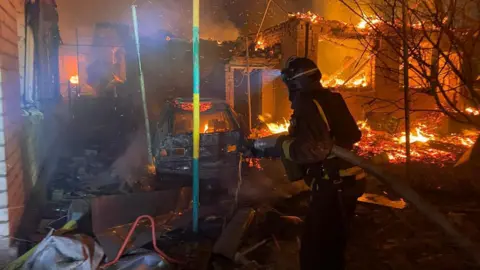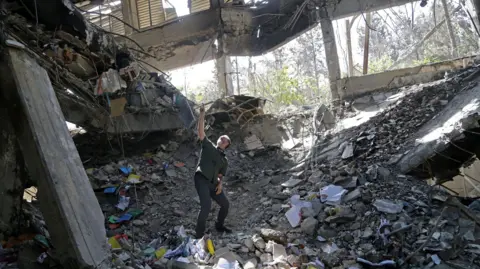In the wake of the recent Israeli strikes targeting military sites in Iran, residents are grappling with a cocktail of emotions ranging from anxiety to cautious optimism. Reports emerged from major Iranian cities like Isfahan, where many voiced their uncertainty about the implications of the military action while clinging to the hope that a more extensive conflict could be averted.
“Soheil,” a 37-year-old engineer based in Isfahan, shared insights from a workplace discussion about the attacks, noting the prevailing atmosphere of concern. “People are experiencing different emotions: Some are worried, some indifferent, and some are even happy, because they believe that Israel's attacks will humble the regime a bit,” he conveyed. Many Iranians, however, opted not to disclose their full identities due to fears of potential repercussions.
Despite the tension, the general sentiment among some citizens leans toward optimism. They hope that the nature of the Israeli strikes, which were reportedly confined to military installations, might signify a limited scope, allowing life to normalize in the near future. Government officials and aligned media sources have characterized the attack as minor, emphasizing that Iran's air defense systems intercepted many incoming threats.
While official narratives attempt to downplay the gravity of the situation, the reality on the ground tells a more complicated story—one that conveys a populace caught in a limbo of anxiety and hope for an uninterrupted future.
“Soheil,” a 37-year-old engineer based in Isfahan, shared insights from a workplace discussion about the attacks, noting the prevailing atmosphere of concern. “People are experiencing different emotions: Some are worried, some indifferent, and some are even happy, because they believe that Israel's attacks will humble the regime a bit,” he conveyed. Many Iranians, however, opted not to disclose their full identities due to fears of potential repercussions.
Despite the tension, the general sentiment among some citizens leans toward optimism. They hope that the nature of the Israeli strikes, which were reportedly confined to military installations, might signify a limited scope, allowing life to normalize in the near future. Government officials and aligned media sources have characterized the attack as minor, emphasizing that Iran's air defense systems intercepted many incoming threats.
While official narratives attempt to downplay the gravity of the situation, the reality on the ground tells a more complicated story—one that conveys a populace caught in a limbo of anxiety and hope for an uninterrupted future.



















